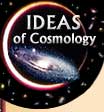
|
|
 |
Who
Were the Herschels? |

|
|
|
William Herschel (1738-1822) William Herschel left Germany and his position in the Hanoverian Guards' regimental band in 1757 after a disastrous encounter with the French army. He and his older brother arrived in London with no money. Music directed Herschel's interests to harmony, which led to mathematics, and finally to astronomy. As his hobby became more serious, Herschel cut back on the number of music pupils so he could devote more time to observing. He was also building his own telescopes. On the night of 13 March 1781 Herschel first observed the planet Uranus. It was a sensational discovery — the first new planet added to those known since ancient times. His new fame brought with it a royal pension, allowing Herschel henceforth to devote his time entirely to astronomy. Herschel later quarreled with King George III over the additional funds he demanded for his 40-foot telescope. Perhaps for this reason, it was only when the King went mad and his son William took over as Regent that Herschel was given the rare distinction of a knighhood, in 1816. William's only child, John Frederick William Herschel (1792-1871), assisted his ailing father in his observations. He became an important astronomer in his own right, hailed as one of the greatest scientists of his day. Caroline
Herschel
(1750-1848) William Herschel's sister Caroline moved to England in 1772
and sang in performances that her brother conducted. She was an invaluable
assistant in his astronomy, helping him build his telescopes and polish
the mirrors, and spending many nights recording his observations. She
was herself an excellent astronomer. She joined him in calculations. and
discovered eight comets with her own small telescope. After William's
death she prepared a catalog of the star clusters and nebulae that they
had observed. The Royal Astronomical Society honored her with a gold medal
and she received a pension of £50. Margaret Herschel (William Herschel’s
daughter-in-law) wrote: |
|
Copyright ©. Brought to you by the Center for History of Physics, a Division of the American Institute of Physics |
*Click on images and links above for more information. |
|||||